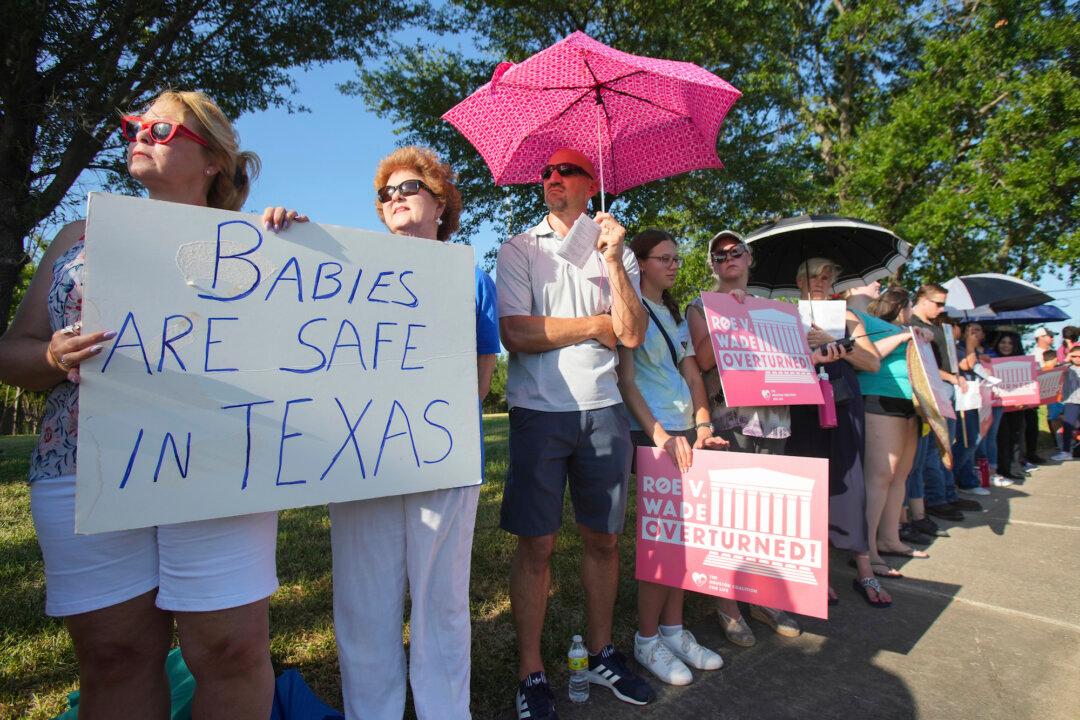Nearly 10,000 additional babies were born in Texas over a nine-month period following the state’s ban on most abortions after six weeks of pregnancy, according to researchers at Johns Hopkins Bloomberg School of Public Health.
The peer-reviewed analysis, published recently in the Journal of the American Medical Association, evaluated the number of live births versus the expected birth counts after Texas Senate Bill 8, also known as the Heartbeat Act, took effect Sept. 1, 2021.





